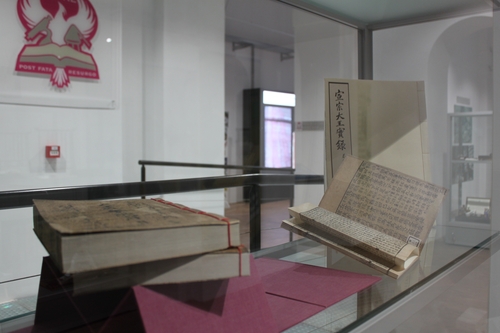ROME, 20 Dec. (Yonhap) – Korean traditional paper, ‘hanji’, will be highlighted in a future museum soon to open at the Higher Institute for Conservation and Restoration (ICPAL) in Rome, Italy.
—
The only museum dedicated to paper in Rome will present the history of this material and the different stages of archive restoration.
—
In this future museum, the public will first experience the four objects of the Korean scholar’s office, namely the brush, ink, ink stone and paper, dolls made of traditional Korean paper and the edition. facsimile of the chronicles of King Injo by the dynamist Joseon (1392-1910). Next to it, a giant screen will show the invention of paper in China in 105 and its distribution in Japan through Korea.
—
It is significant that the hanji is the only one among the papers of the three countries of North-East Asia which will be honored in this museum of the institution of reference in matters of conservation and restoration of archives, illustrating the importance given to traditional Korean paper in Italy, a powerhouse in the restoration of cultural goods.
—
Recognized for its quality of resistance over time, the hanji is often used for the conservation and restoration of cultural works in Italy. The handwritten text of the prayer of St. Francis, the Gospels from the Byzantine period (6th century) and a work by Pietro da Cortona are among those that have been restored using traditional Korean paper.
—
More recently, the hanji has attracted much attention as the material for the restoration of Leonardo da Vinci’s “Codex on the Flight of Birds”.
—
Praising the good resistance of the hanji, Maria Letizia Sebastiania, the former director of ICPAL who led the establishment of the paper museum, highlighted the “bright” future of the hanji.
—
“I heard that the traditional process of craftsmen is still maintained in the making of hanji,” she noted. “The artisanal culture that has disappeared in Italy will not only guarantee the excellent quality but also greatly contribute to the globalization of hanji,” she said.
—

